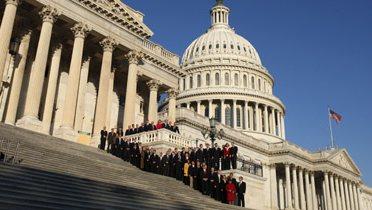Executive Summary
That Washington is corrupted by special interests is perhaps the most common critique of the federal government. Poll after poll reveal a public convinced that lobbyists are a destructive influence, and most lobbying reform ideas accordingly take a distinctly moralizing tone. “Drain the swamp” was Nancy Pelosi’s rallying cry in 2006, backed by a promise to, on Day One, “break the link between lobbyists and legislation.” President Obama, too, spent his campaign bashing special interests (as did McCain), and also made a symbolic point of enacting new lobbying rules for his administration on Day One.
This paper argues that high-handed moralizing about lobbying misses the point: Lobbyists are not inherently corrupting, nor does their primary influence stem from some devilish power to automatically compel legislative outcomes through campaign contributions and/or personal connections, as is commonly believed. Rather, their influence comes from their ability to become an essential part of the policymaking process by flooding understaffed, under-experienced, and overworked congressional offices with enough information and expertise to help shape their thinking.
This situation, however, is far from benign. First, representation is extremely one-sided. Depending on the estimate, between two-thirds and three-quarters of all money spent on lobbying is spent on behalf of businesses. If lobbying is a contest of who has the resources to blanket and bird-dog Capitol Hill and the federal bureaucracy with arguments and information on any given issue, it’s just not a fair fight. Second, the process is not adequately transparent. The public, the media, and even competing advocates are hard-pressed to know which lobbyists are meeting with whom and what they are arguing and why. Without transparency, accountability suffers.
This paper proposes a simple, cost-effective solution: The Library of Congress should create a website that will become the de facto online forum and clearinghouse for all public policy advocacy. Such a website would both level the playing field (it is much cheaper to post a web page than to hire an army of lobbyists to descend on Washington) and increase transparency and accountability (if all positions and arguments are public, everyone knows who is lobbying for what and why). This will result in more democratic and more thoroughly vetted public policy.




